Home > Edu-Tech > Are Gen Z Really Dating AI? The Surprising Truth About ChatGPT, Claude and Other AI Therapy Sessions.
Are Gen Z Really Dating AI? The Surprising Truth About ChatGPT, Claude and Other AI Therapy Sessions.
New research reveals what really happens when people use AI for emotional support. Spoiler: It's not what you think, and you're probably doing it too.
By :Thomas Inyang🕒 28 Jun 2025
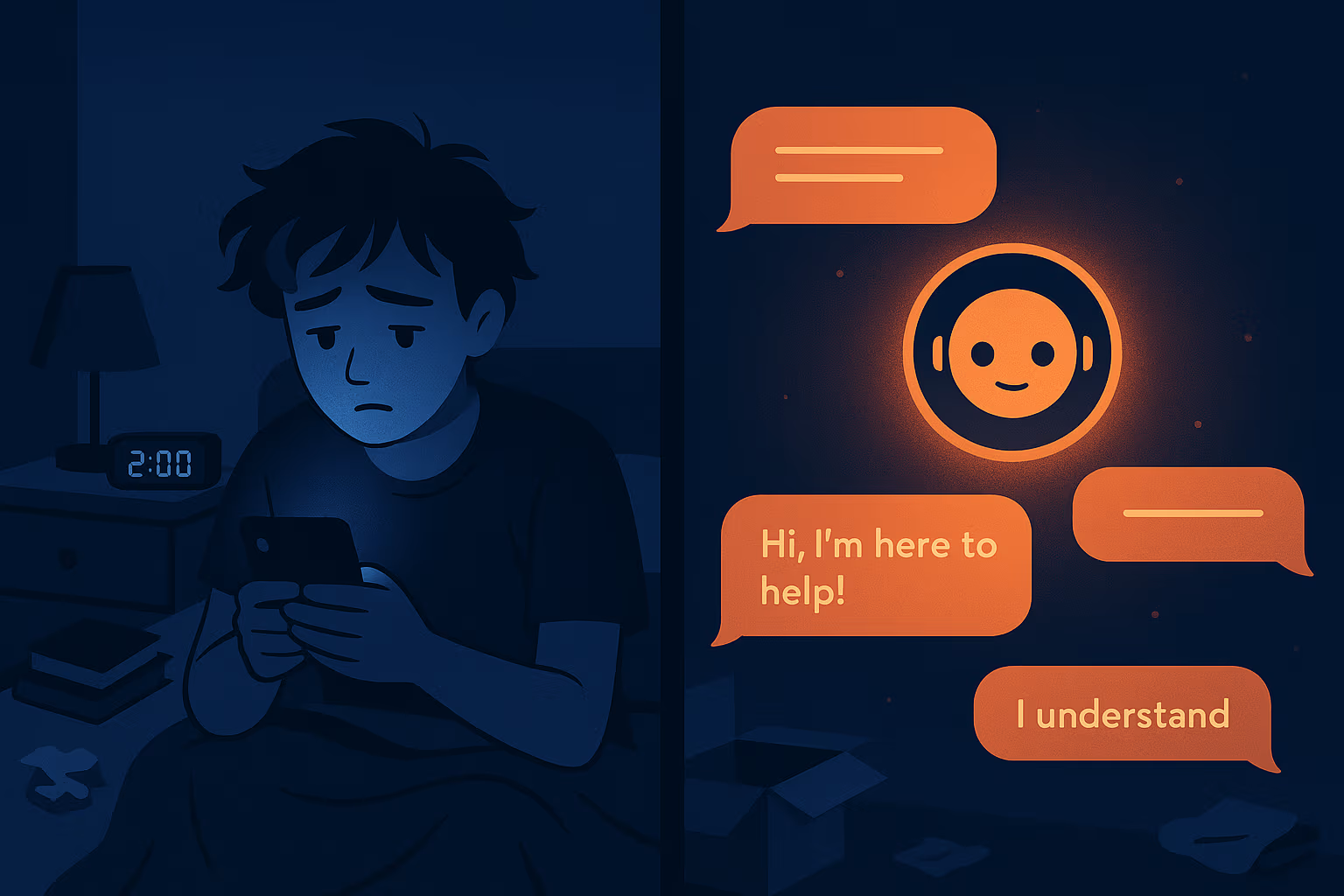
Introduction
You know that moment when you're lying in bed late at night, overthinking everything? Maybe your situationship just got complicated, or you bombed a job interview, or you're wondering if you picked the wrong major. Your friends are asleep, your parents would just worry, and honestly, you don't want to be that person texting in the group chat again.
So you open ChatGPT. Or Claude. Or whatever AI you use for homework help.
Turns out, you're not alone. Like, really not alone.
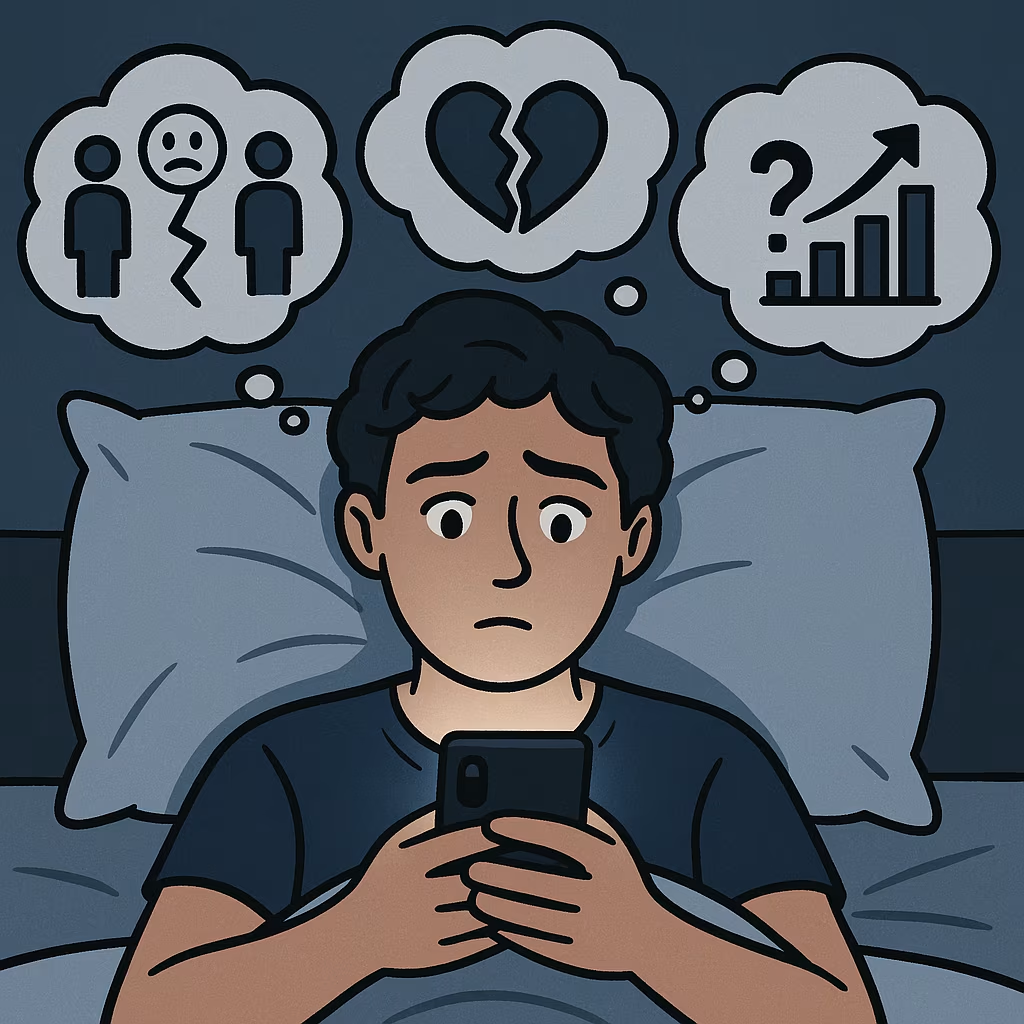
The Data That'll Make You Feel Less Weird
Movies like "Her" made us wonder about emotional connections with AI. Now, it's becoming real. The company behind Claude, Anthropic, is exploring this space because people are increasingly turning to AI for personal support.
Having a smart, always-available helper sounds amazing for your mood. But there's a catch: AI can encourage unhealthy attachments or misguided thinking. This concern prompted Anthropic's big goal to prevent AI from exploiting your emotions just to keep you engaged or boost profits, especially if it harms your mental well-being.
What Are People Actually Asking About?
Ready for this? The most common topics are painfully relatable:
Career panic: "I graduated six months ago, and I'm still working retail. Am I failing at life?"
Relationship confusion: "They said they 'need space,' but they're still watching my Instagram stories." What does that even mean?"
Existential dread: "Is this it? Work, sleep, repeat until I die?"
Social anxiety: "How do I make friends as an adult when everyone seems to already have their groups?"
Family drama: "My parents keep asking when I'm getting married/a real job/my life together."
Sound familiar? Yeah, I thought so.
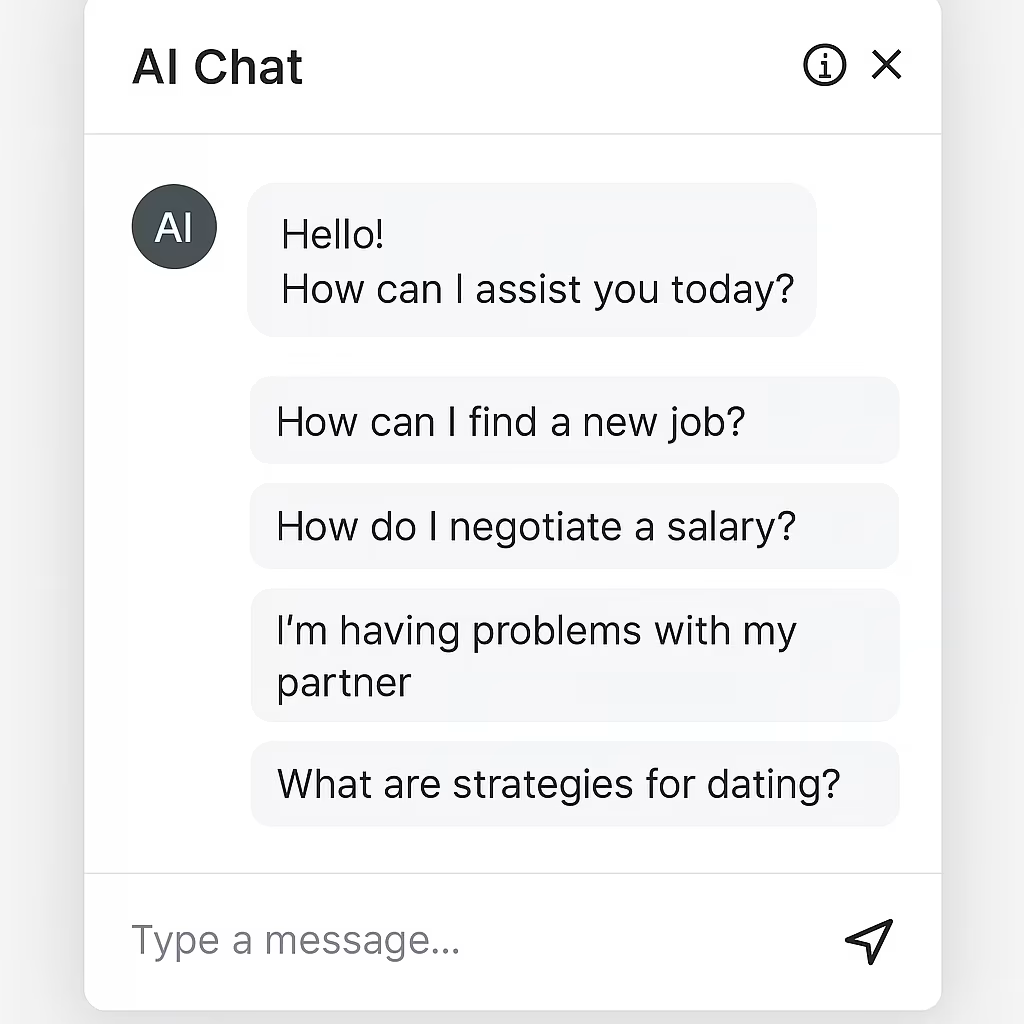
The AI That Never Gets Tired of Your Problems
Here's where it gets interesting. Unlike your human friends, AI almost never tells you to just "get over it" or changes the subject. The research found that in 9 out of 10 emotional conversations, AI just... listens and helps.
It only pushes back when you're asking for something genuinely dangerous, like extreme dieting tips, or when someone mentions self-harm (then it suggests getting professional help, which, fair).
But think about this: When's the last time you had a friend who was available 24/7, never judged you, never had their own drama to deal with, and never got tired of hearing the same problem for the fifth time?
That might actually be a problem.
The Good News About Your Midnight AI Chats
The researchers found something pretty cool. People who chat with AI about their problems generally end the conversation feeling more positive than when they started. Their language gets more upbeat; they seem more hopeful.
Now, they only measured what people typed, not how they actually felt later. But still, these conversations aren't making people remain in their dark places but are giving them that sign of hope and relief.
The People Having 50+ Message Conversations
This is where things get wild. Some people are having MARATHON conversations with AI. We're talking 50+ messages back and forth in a single chat (we are guilty of this).
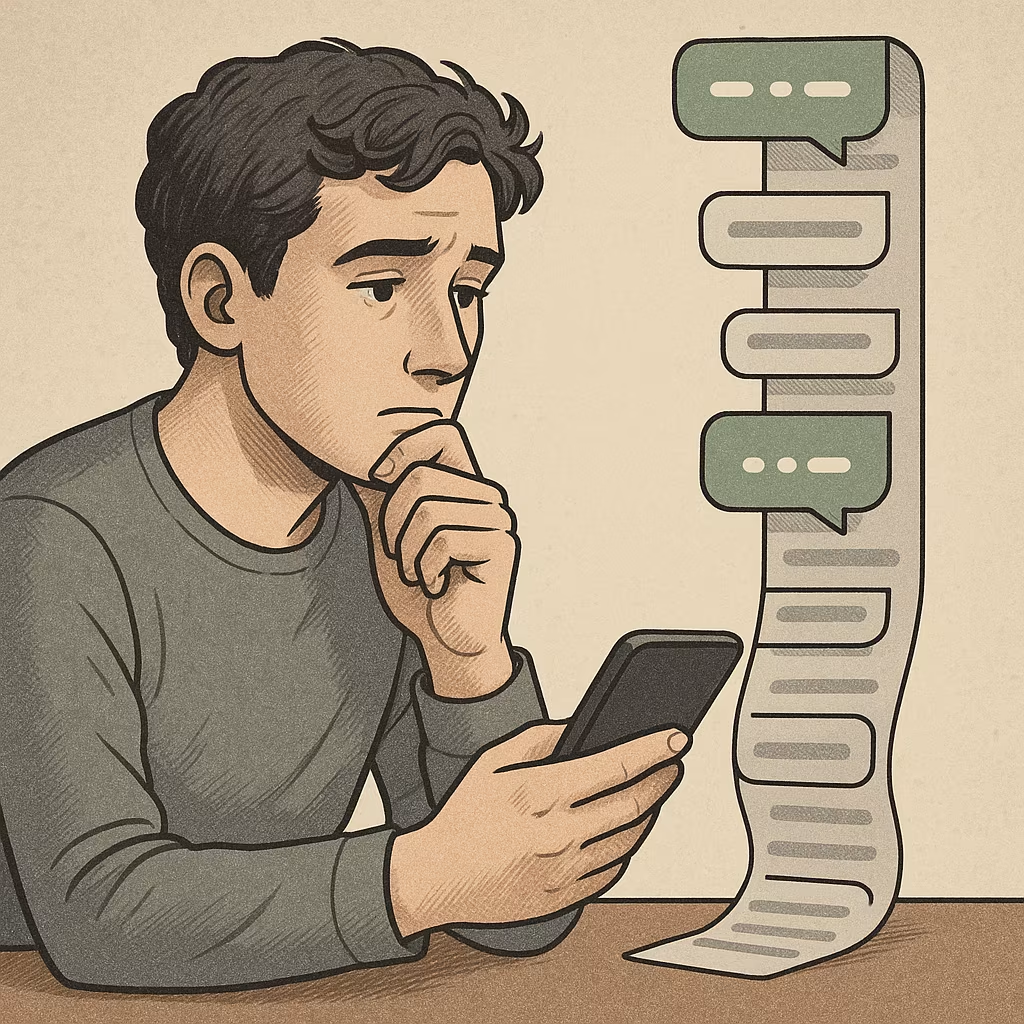
These aren't just "help me write a resume" conversations. People are working through deep stuff such as trauma, major life decisions (career, marital, finances, etc.), and philosophical questions about what it all means. Some are mixing personal problems with creative projects or intellectual discussions.
See Also: Pattern Recognition and AI Detection
It's like having a really long, really intense conversation with someone who never needs a bathroom break.
But Wait, Is This Actually Healthy?
Here's the million-dollar question: If AI gives you perfect emotional support whenever you want it, what happens to your human relationships?
Think about it. Your real friends:
- Have their own problems
- Sometimes give bad advice
- You are scared if what you shared with them becomes the next trending story on X.
- Aren't always available
- Have bad days that affect how they respond to you
- Get tired of hearing the same complaints
AI doesn't have any of these limitations. But maybe those limitations are actually... important?
See Also: Claude 4 Models, Tools, and Development Workflows (2025)
Learning to deal with friends who aren't perfect teaches you patience. Working through conflicts makes relationships stronger. Having to wait for support sometimes builds resilience.
The worry: Are we training ourselves to expect relationships that don't actually exist?
The flip side: Maybe AI helps us figure out our thoughts before we bring them to human friends. Maybe it's practice for real conversations. Maybe it's just a safe space to vent without judgment.
Why This Matters for Your Generation
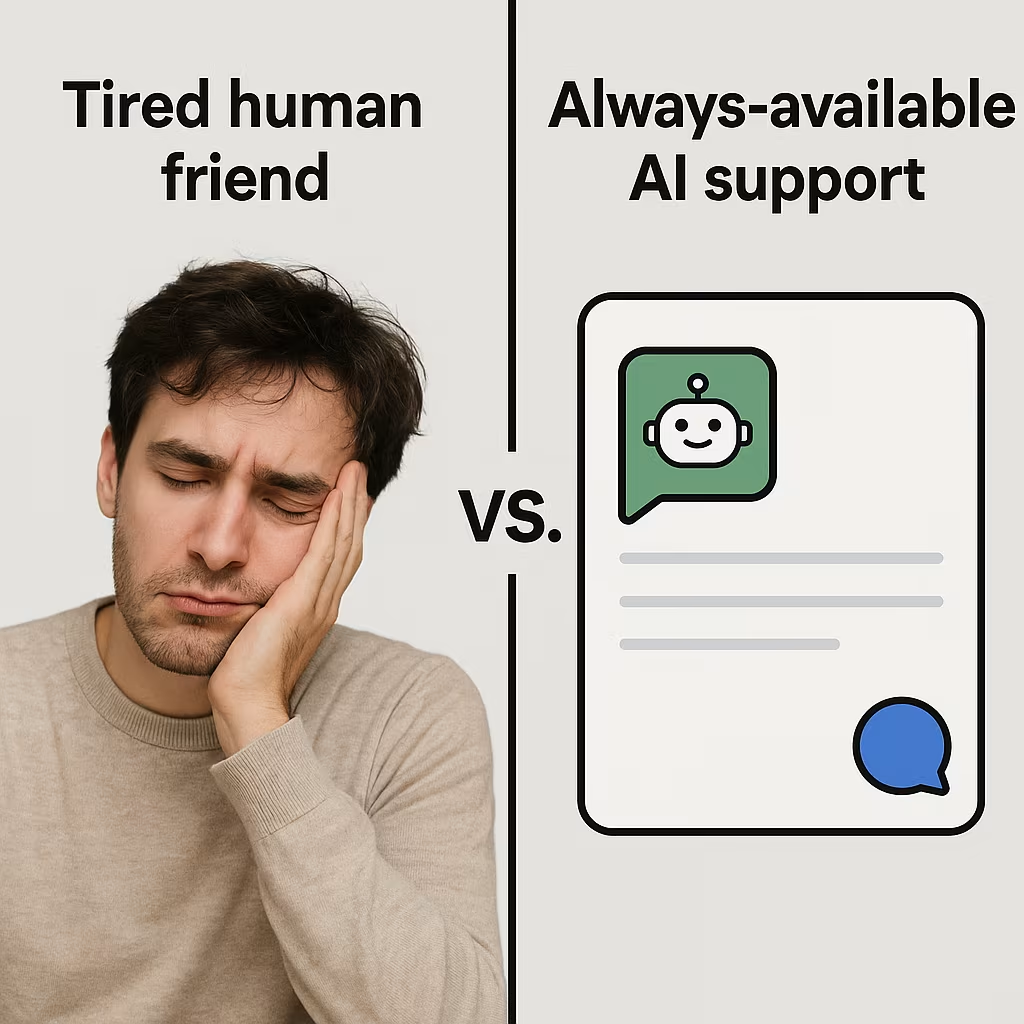
You grew up texting instead of calling. You're comfortable with digital relationships. For you, getting emotional support through a screen probably feels pretty normal.
But you're also dealing with stuff previous generations didn't have to handle:
- Social media comparison culture
- A job market that demands experience for "entry-level" positions
- Dating apps that turned romance into a swipe-based game
- Living through multiple "once-in-a-lifetime" crises before age 25
Maybe AI emotional support isn't replacing human connection; maybe it's just filling the gaps that didn't exist before.
The Real Question
The research shows most people use AI as an alternative to human relationships, not a replacement. But as AI gets better (and it will), that might change.
The real question isn't whether AI emotional support is good or bad. It's: How do we use it in a way that makes us better at being human, not worse?
The key is staying intentional about it. AI can be a great tool for working through your thoughts, practicing difficult conversations, or getting support when humans aren't available. But it probably shouldn't be your only source of emotional connection.
See Also: Google Veo 3 AI for Video Content Creation
Bottom line: You're not weird or wrong for asking AI for advice. Hundreds of thousands of people are doing it. Just remember that the messy, imperfect, sometimes unavailable humans in your life offer something AI can't: real connection with someone who's figuring out life alongside you.
And honestly? That's probably worth keeping around.
P.S.—If you're reading this at 2 AM because you're overthinking something, maybe text that friend tomorrow. They probably miss hearing from you anyway.